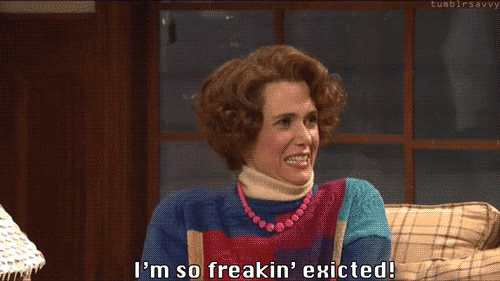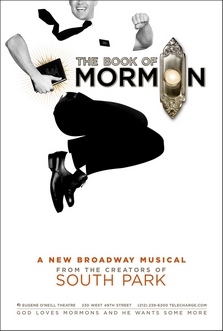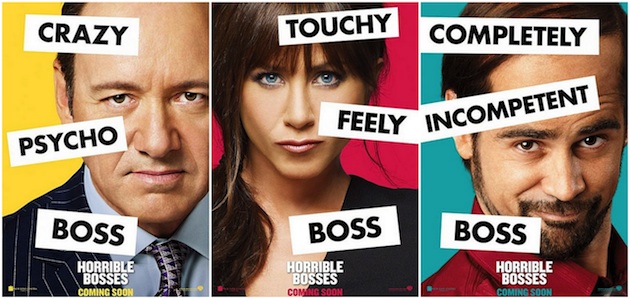All right, you lovely people! We have a special guest today--my critique partner, Shelley Greene, has published her first book, a kick-ass romantic suspense novel called The Fire Walkers! Yay! I can hear you guys being all excited. She's here because I tortured her with a little interview, so I hope you enjoy.
Take it away, Shelley!
Hi, Sarah!
Thank you so much for hosting me today! My debut
novel THE FIRE WALKERS released July 1st and I’m thrilled to talk to readers about it.
Blurb from THE FIRE WALKERS, Shelley N. Greene:
Kelly Monroe is an idealistic good girl thrown into a bad situation. A graduate student chasing her dreams of a PhD, one party invitation lands in her a jail cell with only vague memories of the night before, images of a tragic bonfire haunting her. Sentenced to perform community service at a horse rescue, Kelly’s life goes from bad to worse, all under the watch of an attractive, blue-eyed detective. Driven to stick out the hard times, Kelly develops a bond with Keegan, an abandoned racehorse horse with a past.
Ex-NARC turned arson detective, Aidan Wright is tracking the drug dealers who killed his partner. Kelly’s memories of the bonfire prove to be the missing piece to Aidan’s investigation of several drug-related teen deaths, perpetrated by the band of drug dealers who scarred him years ago. When Kelly becomes the unsuspecting victim of the drug group’s trafficking, Aidan is forced to stay close to her to catch them.
As Aidan uncovers the truth, Kelly develops feelings for the fearless, blue-eyed cop, and the battered arson detective falls hard for the outgoing girl with the contagious laugh.
I'm lucky enough to have known you for a while, but tell
everyone about yourself:
I’m coffee loving,
late-to-the-party, night writer who trips horrendously through things before
learning how to do them the right way. I was raised a dog person (cocker
spaniels), and later transitioned into a rescued horse person (visited, not
owned), as well as a diva cat who is lovably needy and independent at the same time. When not
living the dream of neurotic author, I’m an avid nature walker, intermediate
photographer, and scrapbooker.
What
are your favorite and least favorite parts about being a writer?
My favorite part of
being an author is the open arena in which we work. When telling a story or
creating a character, you get to go everywhere and anywhere; you get to be
anyone you wish to be. The research you do takes you to new places and teaches
you new things. It’s the one job that allows you to stand in the shoes of any
profession, travel to any setting, or simply make up your own world.
The least favorite part
is the stress that comes with the job. Like any profession, writing takes time,
experience, and skill, all of which are the result of practice and failure. I've noticed that, “You know you’ve crossed over into being an
author when someone says to you, ‘I’ve been working on a novel’, and you’re
first response is ‘How do I gently explain to this person the life they’re
embarking on?’” It's a tough life!
Prose, narrative voice,
adverbs, dialogue tags, present tense, back story, grammar…grammar. Did I
mention grammar?
Once the thing is
written its copy edits, galleys, marketing, and book reviews. It’s like a long
race with a million hurdles, and every person stumbles in their own, select
places. But when you keep running, even when exhausted and ready to give up, that’s when
you know that you’re an author.
Authors are awesome about helping each other out, so what’s
one piece of advice you’d give to other writers?
Be kind to yourself.
When you create a
written work in a solitary environment it’s all yours, no one else can see it.
Once the work is published and out in the world, you have no control over it or
how it will be received. That’s an unnerving part of the process that makes a
writer feel very exposed and out there. Your
first book will be different from your second, and different from the one after that. You
grow with every word, sentence, scene, and story. Worry about what’s inside of
you, and leave the rest of the world outside the door.
Take care of the
creator (you) and KEEP WRITING.
Do
you prefer silence or to have music on when you’re writing? What kind?
I’m the type who needs
complete silence when I’m writing, so I don’t play music because I find it
distracting. I do however love to listen to music away from the keyboard, as it
helps give me get an emotional and mental grasp on the images and scenes. A
playlist develops as I write each book, and there is a list for THE FIRE WALKERS.
With TFW it was about feeling lost,
cultivating courage and finding your fire.
The following songs take me back to
TFW’s pivotal moments:
FIND
YOURSELF – Brad Paisley
STANDING
IN FRONT OF YOU – Kelly Clarkson
THE
SUN WILL RISE – Kelly Clarkson
IT’S
WHO YOU ARE – A. J. Michalka
BRAVE
– Sara Bareilles
The second book in the Walker series is being
drafted as we speak (um, type), and the
tunes that put me in the characters point of view are just starting to come to
me.
So far two songs have become earworms for Book 2:
ANYWHERE BUT HERE –
SafetySuit
UPTOWN GIRL – Billy Joel
Awesome playlist! And how’d
you get the idea for THE FIRE WALKERS and the rest of the Walker series?
The idea for THE FIRE WALKERS came to me suddenly and wouldn’t let go. Several years ago I began
volunteering at a horse rescue in western Maryland, and the horses there
inspired me in so many ways. They each had personalities and histories.
Drawn in by
their stories, I began to daydream, and around that time an old news article
I’d read in the 90’s also kept coming back to me. When I get curious I do research,
and everything I was learning began to tie together seamlessly. The idea of a
horse rescue setting along with a strong external conflict began to percolate. I
connected instantly with my heroine, Kelly,
but (mentioned in a CN
blog post) Aidan,
my hero in THE FIRE WALKERS, was a bit of difficult character to grasp at first.
A strong, fiery guy, I feared that my depiction of him on the page wouldn’t
do him justice. In the end, Aidan turned out to be a wonderful hero. Blue
eyes, dark hair. Swoon worthy as he single handedly carries heroines, as well
as nosy, omnipresent narrators out of burning barns.
The overall Walker series is
based on a premise
of Astrology, each element containing signs (characters) which play into
its theme, and as the plot for TFW unfolded in my head I knew that the fire
theme would result in an action packed story. From the beginning TFW was set to
be a romantic suspense, while the rest of the Walker series is based on the
element of each book, and will each lean toward contemporary.
So....how’s
book 2 coming along? Inquiring minds what to know!
Book two is coming
along great! It’s about half done, and I’m very pleased with it so far. In THE FIRE WALKERS, you meet Ben, the hero of book two. His element is earth, and it
makes Ben a very industrious and stable guy. As the second book in the series
and the second element in the astrological sequence, I was worried about the mental
changing of gears, so to speak. The fire element is physical and instinctive, while
earth is stationary and settled. Like lava that has cooled to become igneous
rock, I had to transition my perspective from active to inert. My earth
characters are practical and meticulous, which is opposite my impulsive and
unpredictable brood in TFW. Another flip-flop has been that I’m channeling Ben
clearly, far easier than I did Aidan, but book two’s heroine has required some
extra consideration…
More details on that coming soon. :D
More details on that coming soon. :D
What
are you working on now?
I’m taking a short
break from book two to focus on TFW promotion, distribution, and to breathe a
little. But next week it’s back to the drafting desk!
Tell
us what genre(s) you write in, why, and what your experiences are like writing
THE FIRE WALKERS. If you write in multiple genres, how is the experience
different from one another?
I write both Contemporary
and Romantic Suspense.
Contemporary focuses on
deeply personal conflict. It’s the everyday feelings and problems that a
character encounters in their relationships. Contemporary is definitely a
different “gear” to write in because the author gets to address real life
situations. It’s also a lot fun because readers can relate in a profound way, where
the emotion relayed in the story matches feelings and circumstances they’ve faced,
too.
Romantic Suspense is
contemporary with a kick. A story set in modern day and sprinkled with
believable external conflict. RS is a love story with a hint of danger and
intrigue that excites the mind and still gives the reader the Happily Ever
After.
I love the fact that
THE FIRE WALKERS is a romantic suspense. It lives up to its theme because fire
is physical; action, impulse and adventure. When writing romantic suspense the
author gets to talk about real world problems but with the added perk of throwing
in the danger and bad guys.
There’s one chapter in
TFW written from the girl villain’s point of view, and that scene actually
took a lot of time and research. To ensure
that I portrayed her right involved reading up about the psychology of a felon.
There’s a narcissism, lack of remorse, and dominance to her personality
that shows in the history of how she’d come to join the Dove group. It was a squicky
mindset to write from, but it revealed what the bad guys were after, which amped
up the suspense.
What was
your favorite scene to write in THE FIRE WALKERS?
There are four scenes in the
book that are special to me. In another blog
interview, I talked about a moment that involved my horse character, Keegan.
Today I’ll tell you about another favorite, a scene that occurs in
Chapter 18. In the scene Aidan and Kelly have endured their first fight, while Keegan is
recovering from a health ordeal. Once again all three of the Walkers are together
in one place, and their chemistry is lively and fun.
In the plot this is the second
point of peace before the other shoe drops. The Walkers have survived the initial
challenges, and the future appears sunny until the winds of the final storm
blow in. The scene begins with Kelly as she walks into
the barn to find Aidan visiting with Keegan. Kelly and Aidan's body language and
banter make it clear that they’re comfortable with one another in an intimate
way, and the dialogue feels like a flicker of flame, quick and energetic. The
Aidan we meet in the beginning is withdrawn, his fire dimmed, while Kelly starts
out reserved, watching others live the life that she wants. By this
point in the story Aidan and Kelly have grown more spontaneous
and animated like their fire element. In the barn they joke in a playful and physical
way, chasing one another.
They run and laugh.
The joy is a brief respite
from the final conflict that is about to hit, but watching their evolution from
inhibited to free shows that Aidan and Kelly have found their fire.
I can’t help but smile every
time I read that scene. J
I love living vicariously through my characters.
I love living vicariously through my characters.
What
scene gave you the most trouble in THE FIRE WALKERS?
Chapter 8 had to be the scene
that gave me the most grief in a good way. It’s the first fight between Aidan and
Kelly, and I actually wrote the scene three times. It was important to me to
get the right feel of the moment for several reasons. First off, I like
believable conflict. Disagreement for the sake of fighting is not realistic,
plus these two characters LIKE and are starting to LOVE one another. Their
falling out needs to not be an act of tearing one another down, but rather them
being at cross purposes. And that is especially dynamic when the couple are
fiery in nature. They care passionately about their goals, and their
frustration doesn’t simply build up, it flares.
Before this chapter the last
time Aidan and Kelly had been together they’d felt a spark of attraction and were getting close. In the next chapter we see Kelly’s goal yanked away from
her because of Aidan’s actions.
So at this point the reader has seen Kelly’s side, and can
understand why she’s angry. The scene is crucial
because it’s a crossroads for all the characters. Kelly’s dream crashing down,
Aidan’s obsession with catching the drug dealers, and most importantly, the definition
of a Fire Walker. The truth is raw in that moment and the "camera", so to speak, had
to be angled in such a way to catch all the effect. And there was an intensity
to the way Aidan is blind-sided. Aidan's mind was set on what he wanted, Kelly’s
rebuff opens his eyes to the repercussions of his behavior, as well as pans
out to show the overall battlefield of the situation.
After I’d settled on the version you see in
the book, I felt that "good" level of writer exhaustion, the kind that validates the work. I
reached for a desired result, and kept plugging away at it until it worked. And the scene
brought it all together perfectly.
Where
can we find you on the interwebs?
Author Links:
Where
can we find your books?
Links for
THE FIRE WALKERS:
It was a pleasure visiting with you today, Sarah!
Thank you so much for having me!
You're very welcome, Shelley! Thanks for stopping by. Now get back to writing! :-)
xoxo Sarah









